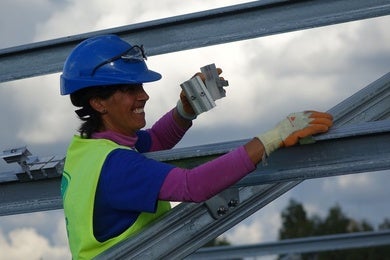Blogs Navigation
Sustainable BusinessRecent posts

Addressing gender-based violence from the private sector: the experience of Laboratorios Bagó
Francisco Méndez, CEO of the pharmaceutical company, shares his company's efforts and achievements in fostering an inclusive and safe work environment.

How Responsible Investments Can Empower Young Women and Girls in Miches While Boosting Tourism
In partnership with Fundación Tropicalia, IDB Invest fosters a more inclusive and sustainable growth path in the Dominican Republic by focusing on their untapped potential.

A Few Very Good Reasons to Protect the Integrity of Gender Bonds
Latin America and the Caribbean has become a leading region in gender bond issuance aimed at bolstering women’s empowerment. These instruments offer a promising capital market solution to mobilize funds towards projects that help accelerate parity.

Three surprising habits of highly productive women in the private sector
In Argentina, 61 percent of mothers work outside the home. In Chile, the US and Mexico, those numbers are 59 percent, 57 percent and 42 percent, respectively. Globally, that percentage is growing. As I prepare to join these women after the birth of my second child, I know I must find ways to be more productive and disciplined in my corporate environment. To tackle this, I spent my last weeks of maternity leave seeking the advice of the most highly productive women in the private sector I know. Their surprising answers on work-life balance, professional success and doing more with less offer tools for women, men and companies more broadly.

How new technology can make business sustainable
Did you know that when Alexander Graham Bell invented the telephone, his initial idea was to develop a device for people to hear live orchestra? The world undoubtedly changed when it was introduced. But it was actually the consumers who turned it into a different innovation, preferring to call friends and family than listen to music. This is just one example how innovation and science are transforming society.

No Women in Renewable Energy? Look Again.
Three years ago when the Canadian Climate Fund (C2F) first launched, private sector clients would balk when we asked them about the gender impact of their proposed renewable energy projects. The renewable energy sector is growing in the region, bringing with it new job opportunities, skills requirements and local business development. In this part of the climate change conversation, women in renewable energy are often invisible. This was, after all, a man’s world – renewable energy projects are primarily construction and engineering. We know the numbers – women earn only 11 percent of Sciences, Technology, Engineering and Mathematics (STEM) degrees in the region.

Overcoming stereotypes could save your business
By Susan Olsen, Lead Specialist, Opportunities for the Majority, IDB Difficulty accessing financing, poor infrastructure and incapacity to scale are cited as reasons why businesses that target the (BOP) fail. Yet, an unwillingness to overcome base of the pyramid stereotypes could easily be the most important explanation as to why some BoP-focused companies aren’t successful. Shattering stereotypes before starting an inclusive business model was the basis for a provocative panel that took place during the Inter-American Development Bank’s BASE III Forum in Mexico City.

Five reasons FinTech companies are an opportunity for financial institutions and SMEs
By Greg Da Re Access to financing has been and continues to be the main obstacle facing small and medium-sized enterprises (SMEs). According to a recent survey, 90% of all banks surveyed in Latin America and the Caribbean consider SMEs strategically important for their business, yet 44% acknowledge that their portfolio lacks suitable financial products for such enterprises.

Don’t let base of the pyramid millennials catch your company off guard
Hardly a day passes without a new article on how businesses are analyzing the needs, wants and spending trends of millennials. In the US alone, millennials (or Generation Y), those born between 1980 and 2000, represent 30 percent of the population. By 2025 they will be 75 percent of the workforce of this country. The impact that millennials are starting to have on the global economy, the environment, and politics is enormous. But “millennial mania” is dominated by studies, research and marketing efforts that focus on affluent individuals. Meanwhile, in Latin America and the Caribbean a market of 77 million low-income or base of the pyramid millennials goes almost unnoticed.


